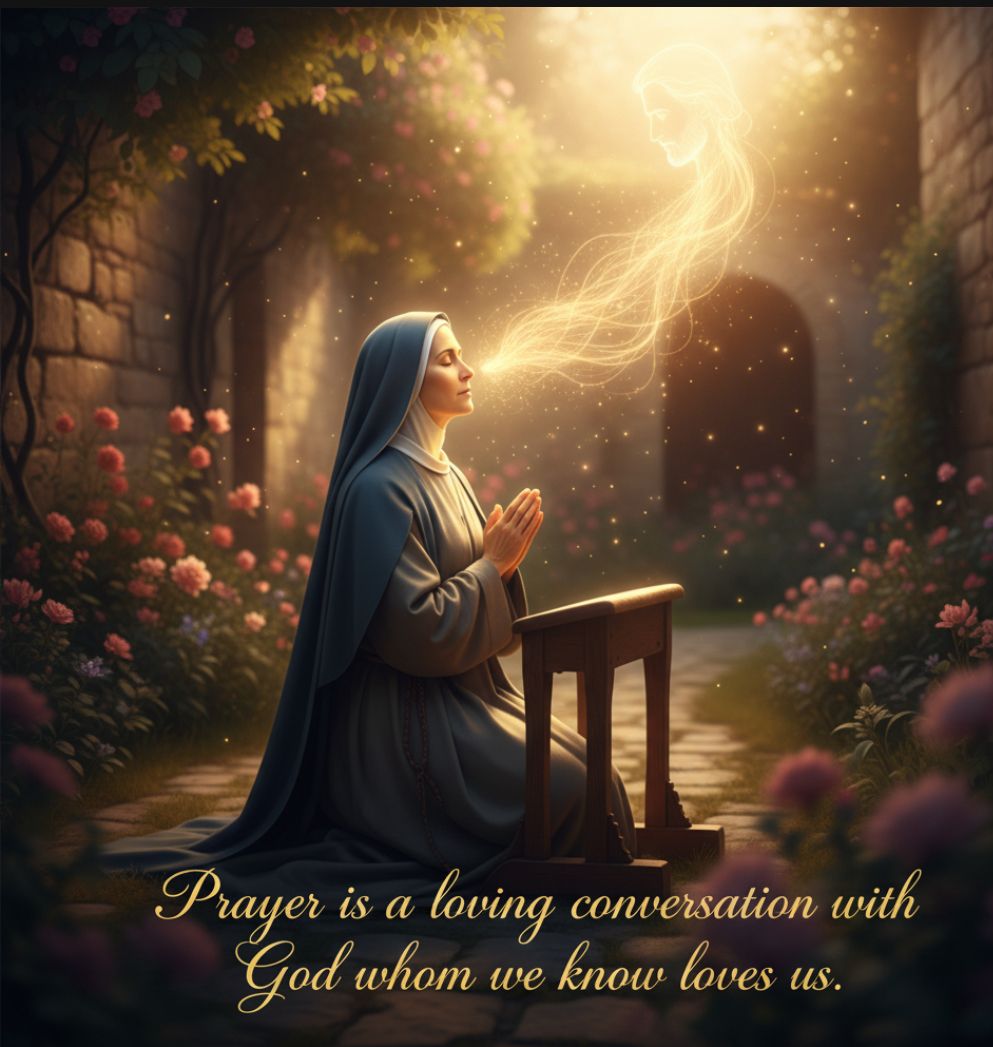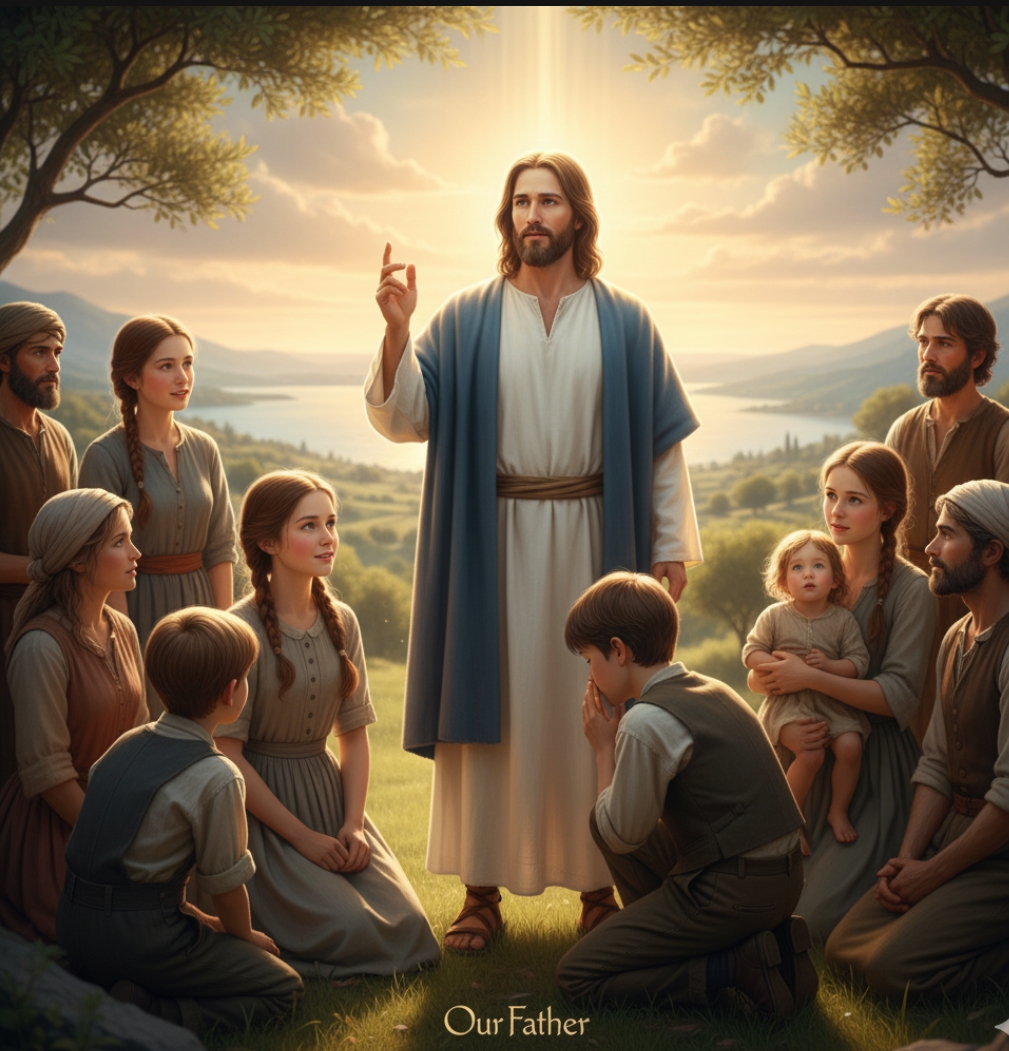A homily on Luke 11:1–4 reflecting on the “Our Father” as the universal prayer of humanity that reveals God as a loving Father and unites all people in trust and love. (8-10-25)
Praise be to Jesus Christ
One evening, while children were playing near their homes a small bird fell from its nest. The children picked it up gently and rushed to an old man who was known for caring for injured animals. As he was taking caring of the bird, one of the children asked with great curiosity, “Will this bird live now without its mother?” The old man looked at the child with love and gently said, “Do not worry, the One who cares for you and me also cares for this little bird.” The child was curious and asked, “Who is that?” The man looked up and said, “Our Father.”

This story helps us to understand the message of today’s Gospel from Luke 11:1–4. When one of the disciples asked Jesus, “Lord, teach us to pray,” Jesus did not give them a long or complicated prayer. He gave a simple prayer, beginning with a lovely word: “Father.” This was something entirely new. Until that time, the people of Israel had been praying to the Almighty, the Holy One, the Lord of Hosts with fear and never dare to come too close.
In the Old Testament, we have a hint of God as Father in the book of Isaiah 64:8. “You, Lord, are our Father; we are the clay, and you are our potter.” Nevertheless, the complete beauty of this truth was not known or revealed to us until the arrival of Jesus our Lord. Jesus, who was with the Father, revealed to us who God truly is and thus the distance between God and humanity disappeared. The one who was feared became the one who could be loved.
To call God “Father” was a revolution. It changed not only how we speak to God but how we see ourselves. When we say the prayer ‘our Father,’ everyone is reminded that we are His children and no one is excluded from His love. One great thing we notice here is that, the prayer ‘our Father’ is not just a prayer of Christians; it is a prayer for every human being. Every heart that seeks love, forgiveness, and daily bread can find a home in this prayer and can pray this prayer. Thus it’s clear that Jesus did not give this prayer to create boundaries but to break them. In every language and every land, this prayer can rise from the heart.
Each line of this prayer teaches us something about life. When we say “hallowed be your name,” we learn to honour God in our daily living. When we say “your kingdom come,” we long for a world of truth and justice. When we say “give us each day our daily bread,” we admit our dependence on God for everything we have. When we ask “forgive us our sins,” we are reminded that mercy heals what pride destroys. And when we pray “do not bring us to the time of trial,” we place our weakness in His strength.
Saint Teresa of Avila teaches us that “prayer is a loving conversation with God whom we know loves us.” The prayer “Our Father” helps us do exactly that. As we pray this prayer ‘Our Father’ we need to be sure that, it is not a prayer to be rushed or repeated without thought. However, it is an invitation to rest in the presence of a loving God as a child rests at the lap of its father.

This prayer, ‘Our Father’ begins and ends in trust and Jesus lived this prayer every moment of His life. Even on the cross, He prayed, “Father, into your hands I commend my spirit” (Luke 23:46). That was His perfect surrender, the final “Our Father” of His life.
When we pray these words, we are joining our voices with His. We are allowing His Spirit to pray within us. And in those simple words “our Father,” the whole Gospel is contained.
Loving Father, teach us to pray as Your Son taught us, with open hearts and childlike trust. Amen.











Our Father is Enough to endure this earthly life Thank Fr, Nirmal Mary SAB
Just downloaded the jjwinapk app. So far, so good – pretty easy to navigate. Gonna give it a proper run tonight. Hoping for some wins! Get the app, guys jjwinapk!